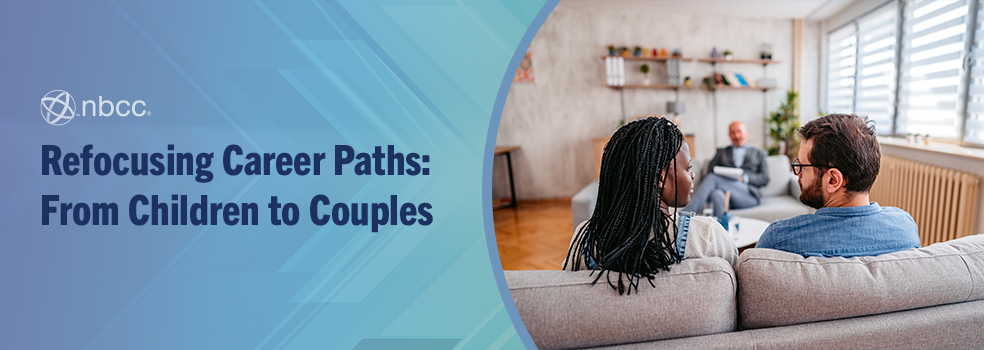
Rebecca Caskey, MA, NCC, LCMHC, discovered her passion for couples counseling by accident.
Early in her career, Caskey was a mental health liaison to a school district and worked with the Department of Juvenile Justice and the Pace Center for Girls, a nonprofit organization. Caskey worked with many at-risk youths and found that many challenges stemmed from their parents’ relationships with each other.
“I found that when I could work with [the parents], the kid got better. They started thriving. When I was able to focus on just working with the parents or the caretakers, I saw this direct correlation. It helped the caregivers lead better lives as partners and as parents, even if they weren’t together,” she says.
Caskey shared this with a supervisor, who encouraged her to take a Gottman Level 1 training and explore couples counseling modalities.
After the training, Caskey was sold. She found her calling and went on to launch her private practice, It Takes Two Center for Couples, based in Asheville, North Carolina. Caskey offers workshops, telehealth services, in-person sessions, and Gottman Marathon/Intensive Couples Therapy—a modality designed to support couples in crisis, limited on time, or preparing for marriage.
Marathon/Intensive Couples Therapy provides 15–20 hours of counseling within a few days. Caskey says this opportunity provides significant results in a short amount of time, but it can be emotionally draining for counselors. She establishes clear boundaries to avoid burnout or secondhand trauma.
“A lot of the time with therapy, you see one couple and then you kind of move on. You can sort of regroup, where that doesn’t necessarily happen for an intensive. You’re holding space the whole time for the same couple,” she says. “It’s really about learning and utilizing your resources and knowing my scope of practice but also knowing my abilities and what works best for [the couple].”
This modality doesn’t work for all couples, but it provides mental health support for couples looking for a continuous discussion and deep dive into their relationship. Taking a weekend for counseling is beneficial for couples who may be uncomfortable waiting a week or longer in between typical sessions.
By offering a variety of services, Caskey provides specialized support for her clients’ unique needs. Caskey’s goal is to help each couple live their best lives together or apart. Sometimes during counseling, couples discover they’ve grown away from each other and that their relationship no longer serves them as individuals.
“In couples therapy, we aren’t necessarily these cheerleaders that are like, ‘I’m going to make sure you stay together.’ It’s like, ‘No, I’m going to make sure that you are going to create new healthy patterns that serve you individually and as a couple, whatever that means for you,” she says.
For counselors who are interested in serving couples, Caskey recommends exploring professional development opportunities. Caskey is a Certified Gottman Therapist, but she also studies Imago Relationship Therapy, Emotionally Focused Therapy (EFT) for couples, sex therapy, and more. Learning a variety of modalities improves client outcomes, as each couple responds differently. In some sessions, Caskey recommends using a mix of modalities, such as combining EFT and Gottman methods.
“See what really resonates with you, and then just go with it and see what comes of it. When you’re working with couples, there’s going to be so many different things that come up, whether it be sexual issues, parenting issues, PTSD, or trauma. If you’re really interested in working with couples, I would suggest going and getting more training in that area,” she says.
One training transformed Caskey’s career. She encourages other counselors to attend couples counseling trainings and other professional development opportunities to learn new skills as clinicians.
“If it even remotely interests you, don’t be scared of it. Just jump in.”
Interview bio: Rebecca Caskey, MA, NCC, LCMHC, is a Certified Gottman Therapist and CEO of It Takes Two Center for Couples. She is based in Asheville, North Carolina, and is licensed in North Carolina and Florida. She holds a Master of Arts degree in mental health counseling from Webster University.
** The views and opinions expressed by interviewees do not necessarily reflect the practices of NBCC and Affiliates.